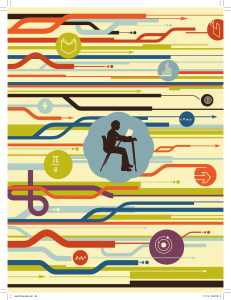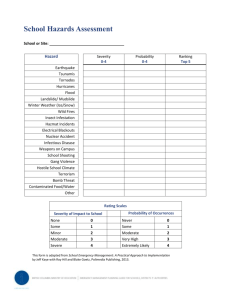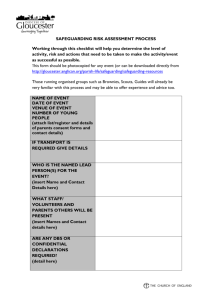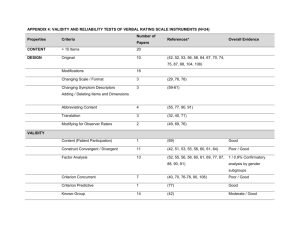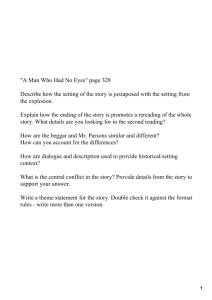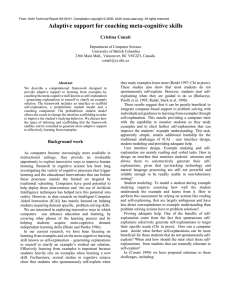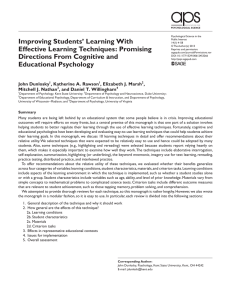UCF_keynote_classroom_strategies_sent_may_2014
advertisement
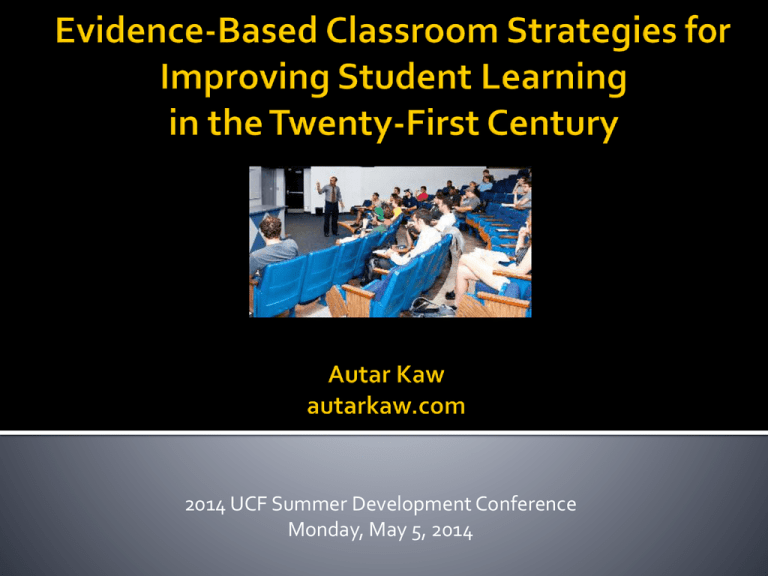
2014 UCF Summer Development Conference Monday, May 5, 2014 • • • • • Preconceived notions Nonscientific beliefs Conceptual misunderstandings Vernacular misconceptions Factual misconceptions Source: http://www.cirtl.net/node/2628 A. B. C. the earth is farther from the sun in the winter than in the summer of the tilt of the earth about its’ axis the earth is not a perfect sphere • • • • Measure prior knowledge. Engage students in active learning. Promote peer-to-peer interaction. Provide their own understanding. • Provide a voice to students. • Model the process of critical thinking. • Sends a message that instructor is vested in student learning. • Stage 1: If you are new to clickers yourself, ask simple questions in the beginning. • Stage 2: Ask challenging conceptual questions. • Stage 3: Structure the clicker questions around the lecture. • • • • • prior knowledge, conceptual understanding, new context, draw knowledge, and relate different representations. 1. Elaborative interrogation 2. Self-explanation 3. Summarization 4. Highlighting/underlining 5. Keyword mnemonic 6. Imagery for text 7. Rereading 8. Practice testing 9. Distributed practice 10. Interleaved practice Low Low Low Low Low 1. Elaborative interrogation 2. Self-explanation 3. Summarization 4. Highlighting/underlining 5. Keyword mnemonic 6. Imagery for text 7. Rereading 8. Practice testing 9. Distributed practice 10. Interleaved practice Moderate Moderate Low Low Low Low Low Moderate 1. Elaborative interrogation 2. Self-explanation 3. Summarization 4. Highlighting/underlining 5. Keyword mnemonic 6. Imagery for text 7. Rereading 8. Practice testing 9. Distributed practice 10. Interleaved practice Moderate Moderate Low Low Low Low Low High High Moderate http://j2jenkins.com/2013/04/29/interleaved-practice-a-secret-enhanced-learning-technique/ Circuit 1: This one is for reactive attention Source: psych.ucla.edu Circuit 2: This one sets our mind to concentrate on something 21 Time spent Mental fatigue Memory failure Higher order learning suffers Source: The New Marshmallow Test: Students Can’t Resist Multitasking, Annie Paul, slate.com; blog.reyjunco.com/ Knowledge: (repeating verbatim) List, State Comprehension: (demonstrate understanding) Explain, Interpret Application: (applying learned info to solve problem) Calculate, Solve Analysis: (breaking things down, formulating mathematical models) Derive, Explain Synthesis: (creating something, combining elements) Formulate, Makeup, Design Evaluation: (making and justifying judgments, selection from alternatives) Determine, Select, Critique Transmission in class and assimilation at home Source: CTL, University of Washington Transmission at home and assimilation in class In Class Assign reading Automatically graded quizzes are assigned What did you not understand about the assigned chapter? PPTs MC questions and their full solutions Extra examples Real world applications Wolfram demos Piazza discussion board 10-15 minutes: Clickers are used for quizzes Answer Pair re-poll instructor discussion. 10-15 minutes: Micro-lectures are based on questions asked 10-15 minutes: Advanced exercises on higher order thinking? Take another automatically graded algorithmic quiz on the LMS Complete and submit higher-order thinking exercise for grading. Continue discussion on Piazza. Answers given via text, videos, links, Livescribe pen, and ShowMe App. Guided Discovery Fully Guided Instruction Guided Discovery Fully Guided Instruction Universal Design Learning (UDL) http://udlcenter.org • Multiple means of representation • Multiple means of action and expression • Multiple means of engagement http://udlcenter.org Evidence-Based Classroom Strategies for Improving Student Learning in the Twenty-First Century
